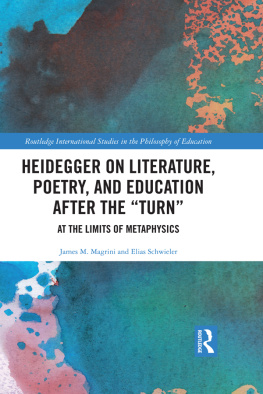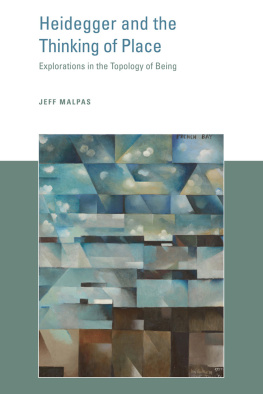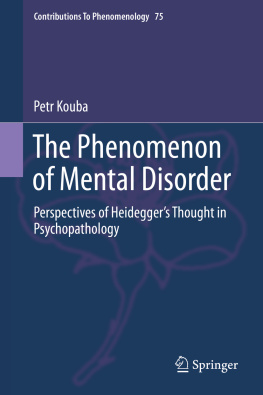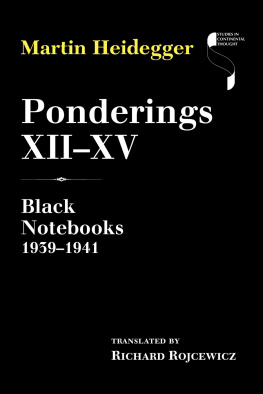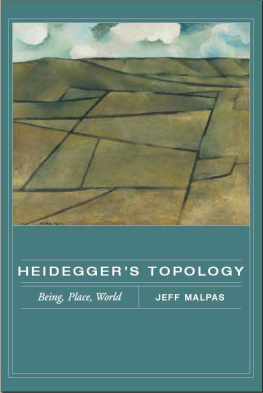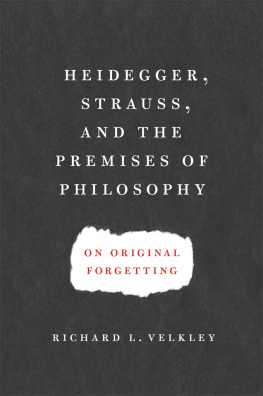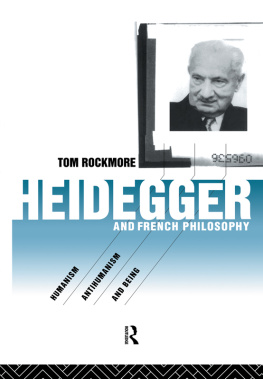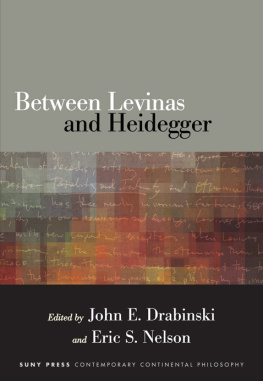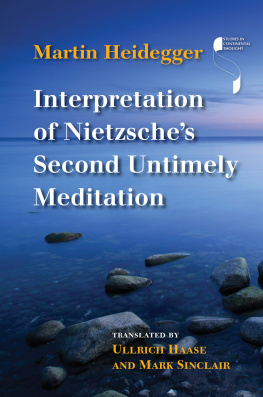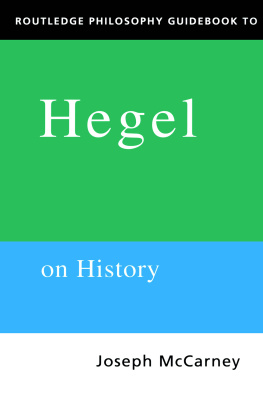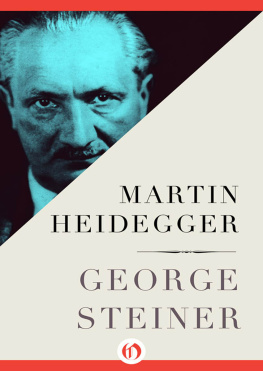Heidegger Martin - PHILOSOPHY OF FINITUDE: heidegger, levinas and nietzsche
Here you can read online Heidegger Martin - PHILOSOPHY OF FINITUDE: heidegger, levinas and nietzsche full text of the book (entire story) in english for free. Download pdf and epub, get meaning, cover and reviews about this ebook. year: 2020, publisher: Bloomsbury UK;Bloomsbury Academic, genre: Religion. Description of the work, (preface) as well as reviews are available. Best literature library LitArk.com created for fans of good reading and offers a wide selection of genres:
Romance novel
Science fiction
Adventure
Detective
Science
History
Home and family
Prose
Art
Politics
Computer
Non-fiction
Religion
Business
Children
Humor
Choose a favorite category and find really read worthwhile books. Enjoy immersion in the world of imagination, feel the emotions of the characters or learn something new for yourself, make an fascinating discovery.

- Book:PHILOSOPHY OF FINITUDE: heidegger, levinas and nietzsche
- Author:
- Publisher:Bloomsbury UK;Bloomsbury Academic
- Genre:
- Year:2020
- Rating:3 / 5
- Favourites:Add to favourites
- Your mark:
- 60
- 1
- 2
- 3
- 4
- 5
PHILOSOPHY OF FINITUDE: heidegger, levinas and nietzsche: summary, description and annotation
We offer to read an annotation, description, summary or preface (depends on what the author of the book "PHILOSOPHY OF FINITUDE: heidegger, levinas and nietzsche" wrote himself). If you haven't found the necessary information about the book — write in the comments, we will try to find it.
PHILOSOPHY OF FINITUDE: heidegger, levinas and nietzsche — read online for free the complete book (whole text) full work
Below is the text of the book, divided by pages. System saving the place of the last page read, allows you to conveniently read the book "PHILOSOPHY OF FINITUDE: heidegger, levinas and nietzsche" online for free, without having to search again every time where you left off. Put a bookmark, and you can go to the page where you finished reading at any time.
Font size:
Interval:
Bookmark:

Philosophy of Finitude
To Mira and Salom,
And to the memory of my mother
Also available from Bloomsbury
Desire in Ashes: Deconstruction, Psychoanalysis, Philosophy, edited by Chiara Alfano and Simon Morgan Wortham
Heidegger and the Emergence of the Question of Being, Jess Adrin Escudero
Heidegger, History and the Holocaust, Mahon OBrien
Heidegger and Nietzsche, Louis P. Blond
Between Levinas and Lacan, Mari Ruti
Lacan Contra Foucault: Subjectivity, Sex, and Politics, edited by Nadia Bou Ali and Rohit Goel
Foucault and Nietzsche, edited by Alan Rosenberg and Joseph Westfall
Nietzsche and Political Thought, edited by Keith Ansell-Pearson

Contents
I owe an infinite debt of gratitude to a good number of people who have seen this project through, both in part and as a whole, since its inception in the winter of 2015 at a retreat in a lodge in Magaliesburg, South Africa. These include: Babette Babich, Dan Dahlstrom, Joanna Hodge, Ulli Haase, Dermot Moran, Paul Patton, John Sallis and Miguel de Beistegui. I owe a special thanks to Thad Metz who generously offered to organize a reading group on an early draft of the book. A thanks is also due to the participants whose contribution improved the book a thousandfold: Jaco Kruger, Gary Beck, Jimmy Kyriacou, Marquard Dirk Pienaar, David Martens, Anton van Niekerk, Pete Wolfendale, and David Mitchell. I also owe thanks to my parents, Jean-Pierre Winkler and Simone Hellebosch, for their continued support.
Lastly, I would like to thank my partner, Katlego, and my daughters, Salom and Mira, for having seen me through the completion of this project. Life has, since I have known them, become light, a dance and a joy.
Heideggers works:
| BP | The Basic Problems of Phenomenology. Trans. Albert Hofstadter. Bloomington and Indianapolis: Indiana University Press, 1982 |
| BT | Being and Time. Trans. John Macquarrie and Edward Robinson. Oxford, UK and Cambridge, MA: Blackwell, 1991 |
| BW | Basic Writings. Ed. David Farrell Krell. New York: HarperCollins, 1993 |
| CP | Contributions to Philosophy (Of the Event). Trans. Richard Rojcewicz and Daniela Vallega-Nue. Bloomington and Indianapolis: Indiana University Press, 2012 |
| DT | Discourse on Thinking. Trans. John M. Anderson and E. Hans Freund. New York: Harper & Row, 1966 |
| EGT | Early Greek Thinking. Trans. David Farrell Krell and Frank A. Capuzzi. New York: Harper & Row, 1984 |
| EHP | Elucidations of Hlderlins Poetry. Trans. Keith Hoeller. New York: Humanity Books, 2000 |
| HCT | History of the Concept of Time. Prolegomena. Trans. Theodore Kisiel. Bloomington and Indianapolis: Indiana University Press, 1992 |
| HGR | Hlderlins Hymns Germania and The Rhine. Trans. William McNeill and Julia Ireland. Bloomington and Indianapolis: Indiana University Press, 2014 |
| HH | Hlderlins Hymn The Ister. Trans. William McNeill and Julia Davis. Bloomington and Indianapolis: Indiana University Press, 1996 |
| MFL | The Metaphysical Foundations of Logic. Trans. Michael Heim. Bloomington and Indianapolis: Indiana University Press, 1992 |
| N14 | Nietzsche, 4 vols. Trans. David Farrell Krell. New York: HarperCollins, 1991 |
| OBT | Off the Beaten Track. Ed. and Trans. Julian Young and Kenneth Haynes. Cambridge, UK: Cambridge University Press, 2002 |
| P | Parmenides. Trans. Andr Schuwer and Richard Rojcewicz. Bloomington and Indianapolis: Indiana University Press, 1998 |
| PLT | Poetry, Language, Thought. Trans. Albert Hofstadter. New York: Harper & Row, 1971) |
| PM | Pathmarks. Ed. William McNeill, 1998 |
| PRL | The Phenomenology of Religious Life. Trans. Matthias Fritsch and Jennifer Anna Gossetti-Ferencei. Bloomington and Indianapolis: Indiana University Press, 2010 |
| PR | The Principle of Reason. Trans. Reginald Lilly. Bloomington and Indianapolis: Indiana University Press, 1991 |
| TDP | Towards the Definition of Philosophy. Trans. Ted Sadler. London and New York: Continuum, 2000 |
| WCT | What is Called Thinking? Trans. Fred D. Wieck and J. Glenn Gray. New York, Evanston, and London: Harper & Row, Publishers, 1968 |
| Zo | Zollikon Seminars: Protocols Conversations Letters. Ed. Medard Boss. Trans. Franz Mayr and Richard Askay. Evanston, IL: Northwestern University Press, 2001 |
This book attempts to justify, perhaps not always very successfully, the belief that the unique is everything or, to put it more precisely using one of Platos expressions, that the unique is to ontos on, thereally real.
By the unique I do not mean that which responds to the question who are you?, that is, the first person whose identity constitutes itself as it narrates its life to the other.
The dominant theory of experience from Descartes to Husserl, including Kant, either conflates the uniqueness of experience with the first person or it accounts for the former by reference to the latter. A Kantian or a phenomenologist, the difference does not matter in this regard, will say that my perception of the red cube is incommensurable with yours because that first perception is mine.
I argue in of this book that uniqueness is prior in meaning to and that it makes possible the constitution of the first person. An experience can be unique and anonymous at the same time, that is to say, it can be left unclaimed by the self.
That is especially true in the case of limit experiences or traumas of different sorts where someone suffers the complete collapse of their personal identity. The sense of that persons life grows dark. She is no longer capable of referring to herself as I. Nevertheless, that does not mean that her experience has become qualitatively indistinguishable from someone elses whose personal identity has also broken down. As I put it in this book, a life is and remains non-replaceable, singular or unique, even when the unity of the first person has broken down, and it is no longer possible to think in the first person or ascribe experiences to the I.
To justify that position, I argue in in What is Metaphysics?, I show that the collapse of the unity of the self is a possible experience and that possible experience, consequently, does not depend on the unity of the first person as a necessary condition of possibility.
What accounts for the non-replaceability of a life if not the unity of the first person? Uniqueness is not a feature that descends from heaven (the immortality of the person). Or at least I dont believe that it does.
Like the word being, uniqueness is not a predicate with an empirical or eidetic content. It does not pick out an accidental property or essence. It tells us nothing about who or what one is. Uniqueness is not the essence of the human being. It is a purely formal feature of existence. One is non-replaceable just by virtue of existing (that is, of being to the measure of Dasein).
Consequently, the haecceity of a being, that is, someones
Font size:
Interval:
Bookmark:
Similar books «PHILOSOPHY OF FINITUDE: heidegger, levinas and nietzsche»
Look at similar books to PHILOSOPHY OF FINITUDE: heidegger, levinas and nietzsche. We have selected literature similar in name and meaning in the hope of providing readers with more options to find new, interesting, not yet read works.
Discussion, reviews of the book PHILOSOPHY OF FINITUDE: heidegger, levinas and nietzsche and just readers' own opinions. Leave your comments, write what you think about the work, its meaning or the main characters. Specify what exactly you liked and what you didn't like, and why you think so.


